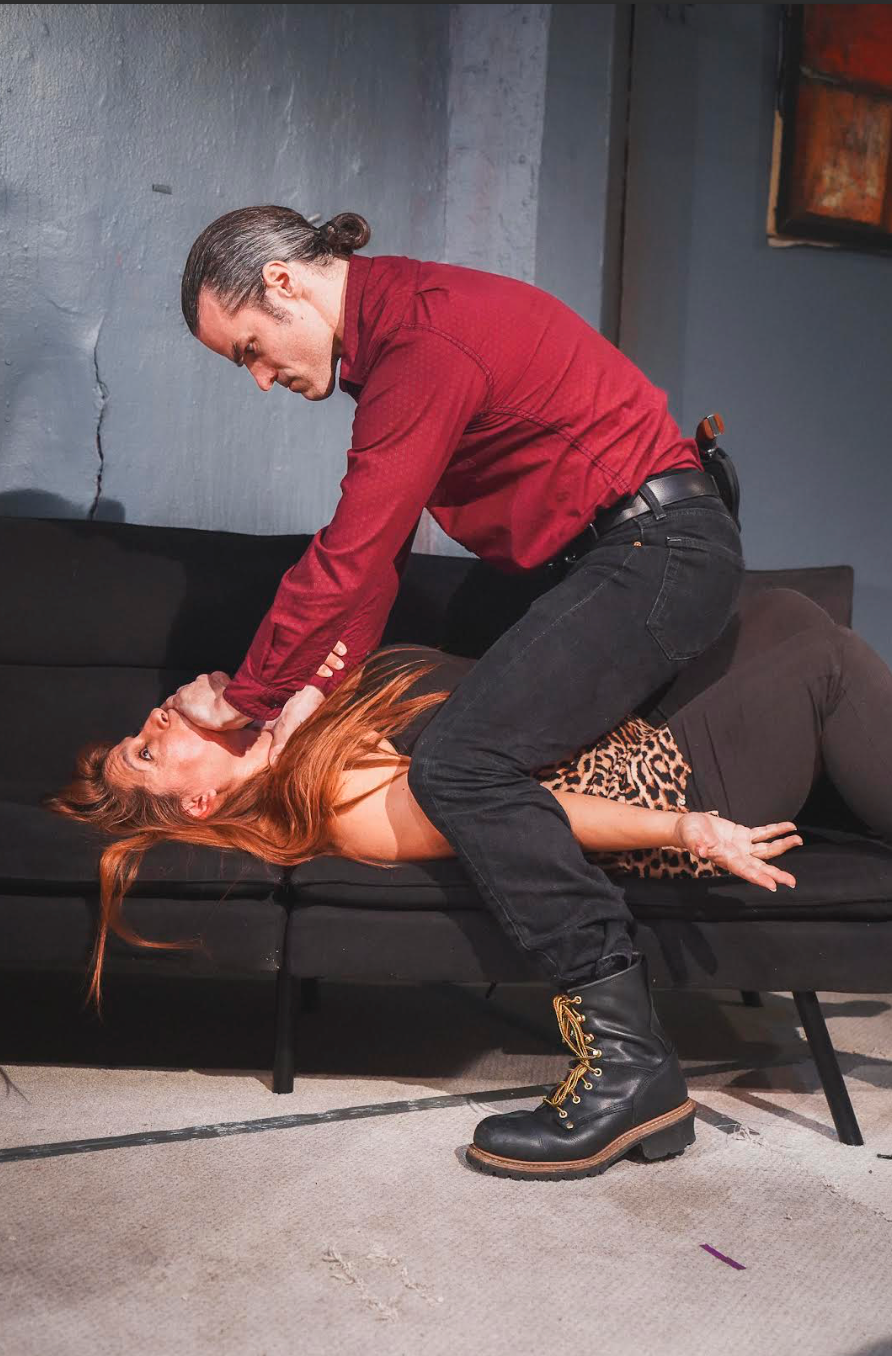Review: ‘Killer Joe’ at Sherry Theater
- Dondre Tuck

- Aug 18, 2025
- 3 min read
Updated: Sep 17, 2025

“Killer Joe” is a two-act play by Tracy Letts that takes place in Texas and opens with Chris (Sebastian Fernandez), a drug dealer who finds himself $6,000 in debt to “Killer” Joe (Bobby Gun), desperate to get out of trouble and fix his family’s situation. He comes up with an idea that he believes could solve everything, telling his father Ansel (Paul Tully) and asking for his blessing. The scheme seems simple until Killer Joe asks for payment up front. With no money to offer, Chris and Ansel agree to let Joe use Chris’s innocent sister, Dottie (Chelsea Newman), as his retainer. What follows is a dark and unsettling unraveling of family dynamics, greed and trauma.

All the actors in the play’s final show at the Sherry Theater understood the assignment and delivered rich, authentic performances. Their commitment was inspiring and there were moments that genuinely made me uncomfortable. The chemistry between Killer Joe and Dottie was undeniable. Newman fully embraced Dottie’s innocence and childlike qualities, while Gun embodied Joe’s stoic, authoritative presence. Their scenes together carried an intensity that brought the play to life.
Tully as Ansel brought nuance to his performance, portraying a man who puts up a front of intelligence yet fails to recognize when he is being emasculated. His comedic timing was sharp, and his aloofness gave Ansel’s character a layered presence. Fernandez as Chris set the tone in the opening scene and carried it throughout. Chris is a complicated character with a messy past, and Sebastian clearly put in the work to build his backstory. His commitment to the role was evident and gave depth to his performance.

Rounding out the cast, Brenda Banda’s portrayal of Sharla was equally strong. She played her role with vulnerability and truth, grounding her performance in thoughtful choices.
Jeremy Luke’s direction made the show feel raw, lived-in and brutally authentic. It was clear he encouraged his actors to craft backstories and lean into the nuances of their characters. This vision paid off. The pacing was effective, though the ten-minute intermission took some of the momentum away from the third scene. Still, the staging worked well in the intimate setting of the living room, giving the play a claustrophobic energy that matched the story.

The design choices supported the world of the play. The set and costumes reflected the characters’ trailer-park lifestyle with accuracy, immersing us in the environment of a struggling, low-income family. Lighting was simple but purposeful, with characters physically dimming lights on stage to shift mood and focus. Sound design stood out, with a radio, barking dogs, and rainfall pushing the story forward and deepening the atmosphere.
The themes in “Killer Joe” center around poverty, trauma and the foolish decisions that come out of desperation. The story makes clear how poverty can warp judgment and lead to choices that damage not just one individual but an entire family. Chris’s debt was the catalyst, but his reckless thinking dragged everyone down with him. One detail I couldn’t ignore was the barking dogs, which always picked up when Chris and Ansel entered or exited. It reminded me of the saying, “barking dogs seldom bite.” Both characters talk big but fail to deliver, which made the symbolism resonate.

The audience stayed engaged throughout, responding at the right moments. I was hooked as well, though I could have done without the intermission. The play is billed as a dark comedy, but I found it closer to a horror thriller. The nudity did not add much, in my opinion, but it did not detract from the overall impact either. This was a bold, unsettling production that delivered on its themes and performances. I left the theater entertained, disturbed and grateful I could catch the final show.
“Killer Joe” performed at the Sherry Theater, 11052 Magnolia Blvd., Los Angeles, from July 26 to Aug. 17.



Comments